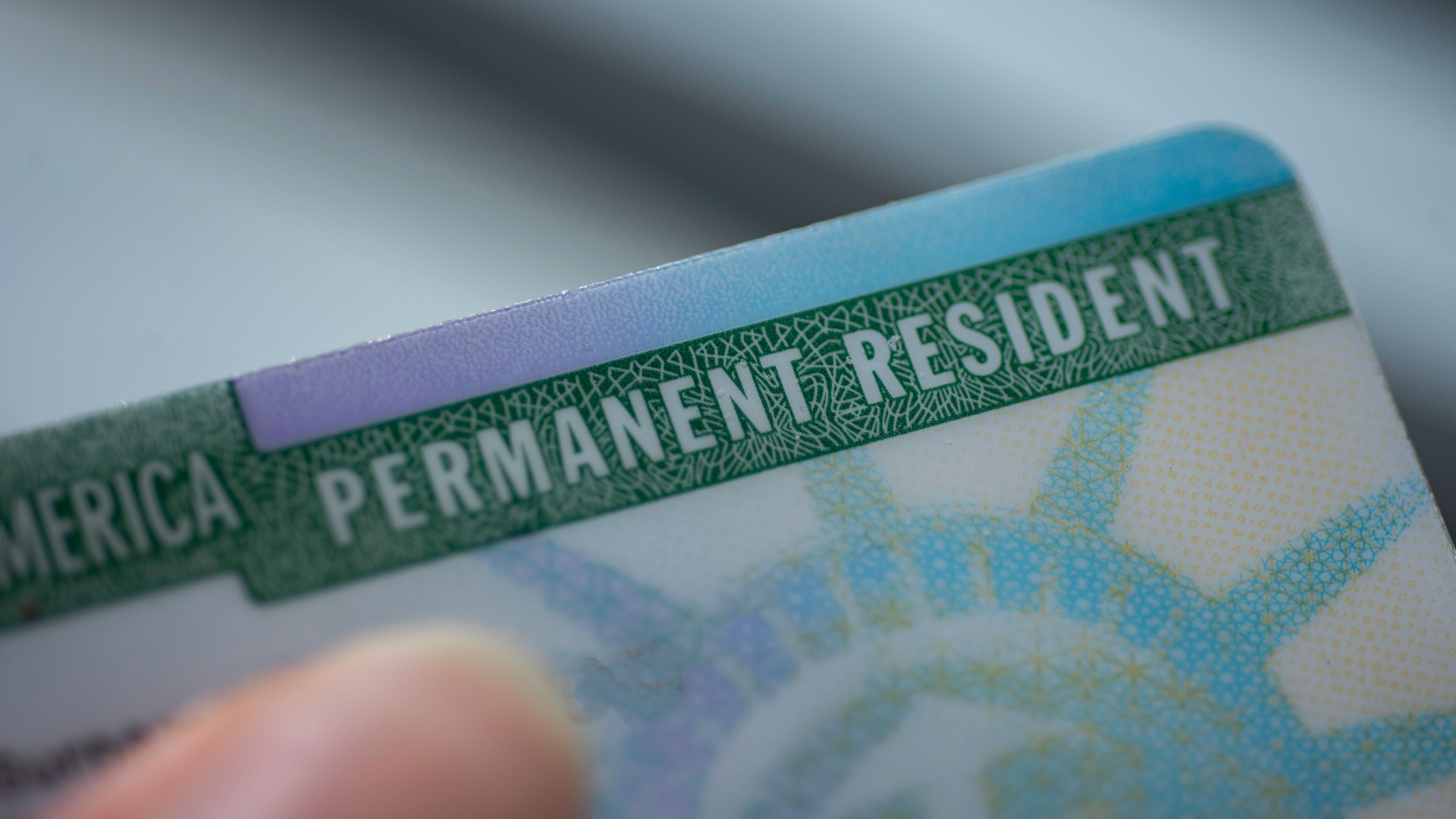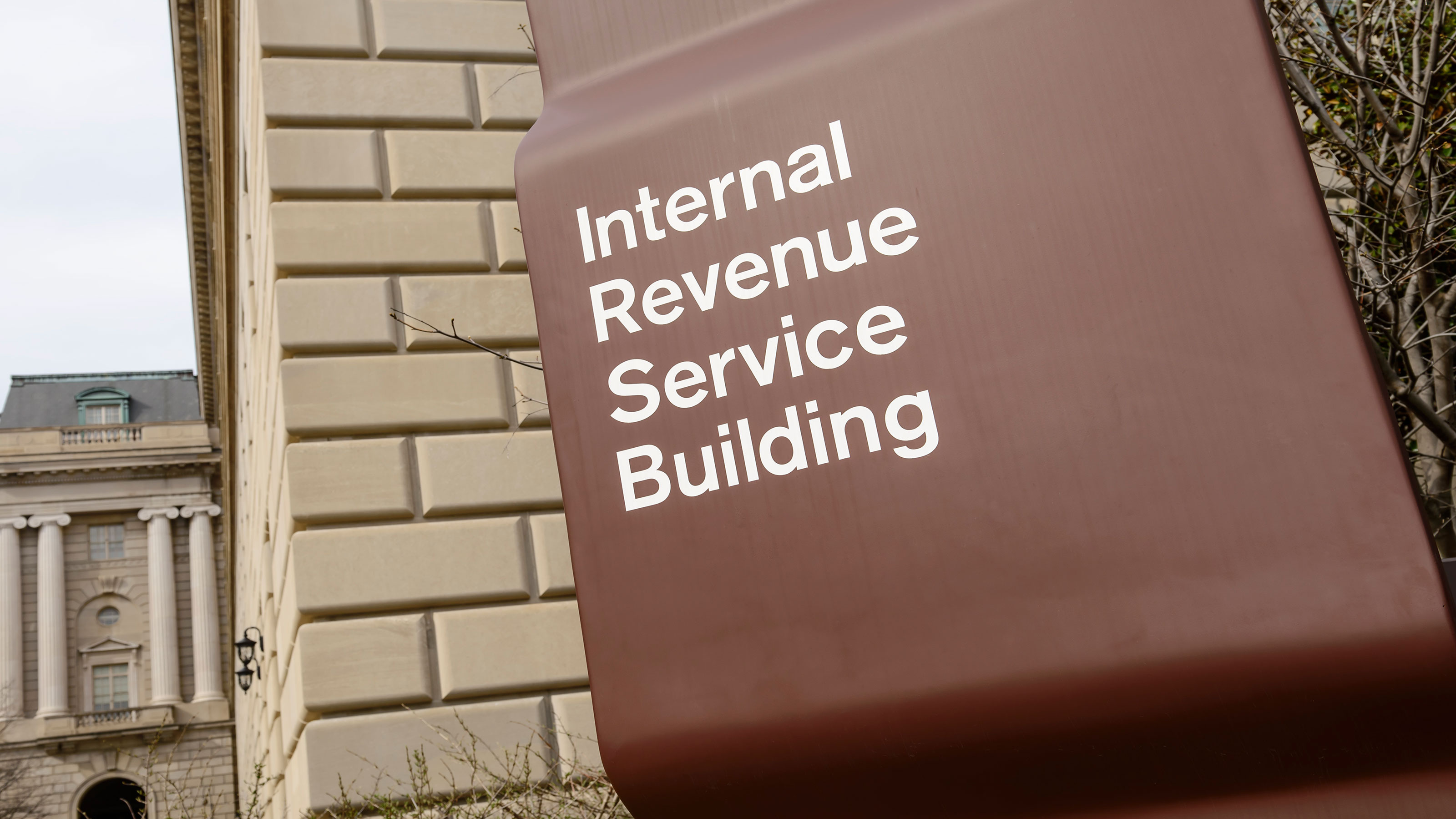Who Should Return Their Third Stimulus Check to the IRS?
Some people who receive a third stimulus check are required to send it back to the IRS. Others can return it voluntarily.


Profit and prosper with the best of Kiplinger's advice on investing, taxes, retirement, personal finance and much more. Delivered daily. Enter your email in the box and click Sign Me Up.
You are now subscribed
Your newsletter sign-up was successful
Want to add more newsletters?
Your first thought after reading the headline might be, "who in their right mind would give back a stimulus check?" A lot of people who receive a stimulus payment can really use the money right now. And most Americans who don't really need a helping hand can certainly find something to do with an extra $1,400. So, why would anyone return their third stimulus check to the IRS?
For one group of people, it's because the IRS is telling them to send it back. They're not eligible for a payment in the first place, so that makes sense (although not all ineligible people are being asked to return mistakenly sent checks). There's another group of Americans who will want to return their stimulus check because they can't otherwise cash it. And then, believe it or not, there may be some people out there who just don't want the money. They can send it back, too.
So, should you return your third stimulus check to the IRS? Read on to find out. We'll also let you know how to send it back if you do. The IRS has specific instructions for returning the money, and you'll want to make sure you do it right. If, like most people, you end up keeping your stimulus payment, just make sure you spend it wisely!
[Stay on top of all the new stimulus developments – Sign up for the Kiplinger Today E-Newsletter. It's FREE!]

Nonresident Aliens Must Return Stimulus Payments
A nonresident alien is not eligible for a third stimulus check. Generally, a "nonresident alien" is not a U.S. citizen, doesn't have a green card, and is not physically present in the U.S. for the required amount of time.
On the other hand, a person who's a qualifying "resident alien" in 2021 is eligible for a third stimulus payment if he or she has a valid Social Security number and isn't claimed as a dependent someone else's tax return. (A resident alien is someone who isn't a U.S. citizen, but meets either the green card test or the substantial presence test for the calendar year.)
So, what should a person who isn't a U.S. citizen do if he or she receives a third stimulus check? According to the IRS, the money should be returned to the tax agency by following the instructions outlined below if the recipient is a nonresident alien (i.e., not a qualifying resident alien) for 2021.
Note that, at this time, we haven't run across any IRS guidance specifically requiring other ineligible people – such as dependents – to return any third stimulus payment mistakenly sent to them. That certainly could change, but for now it appears as if those people can keep any third stimulus check with their name on it.

Surviving Spouses Can Get a New Check Issued
Anyone who died before January 1, 2021, is not eligible for a third stimulus check. The extra $1,400 per dependent is also not available for a parent who died before 2021 or, in the case of a joint return, if both parents died before then. There is one exception to the general eligibility rule: If the person who died is a married member of the U.S. military, the surviving spouse can still get a third stimulus check.
If you filed a joint 2020 tax return and your spouse died before 2021, your deceased spouse won't be included for purposes of calculating a third stimulus payment. However, you will still receive a stimulus payment for up to $1,400, plus an additional $1,400 for any qualifying dependents. If you can't cash or deposit your stimulus payment because it was issued to you and your deceased spouse, you must return it according to the IRS rules described below. Include a letter requesting that the third stimulus payment be reissued in the surviving spouse's name only.

People Who Don't Want the Money
There was a big push to make third-round stimulus payments more "targeted." In other words, to send them only to people who really needed financial assistance. To that end, the law authorizing the third round of stimulus checks completely cut off payments for single people earning at least $80,000 and married couples making $160,000 or more. Nevertheless, that still means a lot of people who didn't lose their job or haven't lost any income during the pandemic will still receive a third stimulus check.
Some of those people may not want a stimulus payment, particularly if they joined the chorus calling for more targeted payments before the law was passed. They may feel guilty for taking money they don't need and/or don't want to contribute to the federal deficit. Of course, there are all kinds of other reasons why someone might not want to accept a stimulus check right now. So, for those people, the IRS will gladly take their stimulus payment back if you follow the instructions below.
There's a special procedure for anyone who received a third stimulus payment in the form of a debit card, wants to return the money to the IRS, and doesn't want the payment reissued. In that case, you should send the debit card along with a brief explanation stating that you don't want the payment and don't want the payment reissued to Money Network Cardholder Services, 2900 Westside Parkway, Alpharetta, GA 30004.
However, if you don't want the money, please consider other alternatives before sending a third stimulus payment back to the IRS. For instance, you can donate the money to charity. The organization you give the money to will certainly appreciate it, and you might get a charitable tax deduction. Supporting a local small business is another good idea to use some unwanted cash. Treat your friends to dinner at a locally owned restaurant. Do a little extra shopping at a mom-and-pop business in your town – you can later donate what you bought to charity if you want. They need the help and you'll be stimulating the local economy.

How to Return a Third Stimulus Check
If you need or want to return a third stimulus check, the method you use depends on how you received your payment and what, if anything, you've already done with it.
If you received a paper stimulus check in the mail and still have it, then:
- Write "Void" in the endorsement section on the back of the check;
- Mail the voided check immediately to the appropriate IRS location listed below (don't staple, bend, or paper clip the check); and
- Include a brief explanation stating the reason for returning the check.
If you received a paper check and cashed it, or if your payment was a directly deposited into your bank account, then:
- Submit a personal check, money order, etc., immediately to the appropriate IRS location listed below.
- Make the check/money order payable to "U.S. Treasury;"
- Write "Third EIP" (EIP stands for Economic Impact Payment, which is what the IRS calls a stimulus check) and your taxpayer identification number (social security number, or individual taxpayer identification number) on the check; and
- Include a brief explanation of the reason for returning the payment.
Use the following table to identify the property IRS location to send your stimulus check, personal check/money order, and explanation.
| If you live in... | Then mail to this IRS address: |
|---|---|
| Maine, Maryland, Massachusetts, New Hampshire, Vermont | Andover Internal Revenue Service 310 Lowell St. Andover, MA 01810 |
| Georgia, Iowa, Kansas, Kentucky, Virginia | Atlanta Internal Revenue Service 4800 Buford Hwy Chamblee, GA 30341 |
| Florida, Louisiana, Mississippi, Oklahoma, Texas | Austin Internal Revenue Service 3651 S Interregional Hwy 35 Austin, TX 78741 |
| New York | Brookhaven Internal Revenue Service 1040 Waverly Ave. Holtsville, NY 11742 |
| Alaska, Arizona, California, Colorado, Hawaii, Nevada, New Mexico, Oregon, Utah, Washington, Wisconsin, Wyoming | Fresno Internal Revenue Service 5045 E Butler Avenue Fresno, CA 93888 |
| Arkansas, Connecticut, Delaware, Indiana, Michigan, Minnesota, Missouri, Montana, Nebraska, New Jersey, Ohio, West Virginia | Kansas City Internal Revenue Service 333 W Pershing Rd. Kansas City, MO 64108 |
| Alabama, North Carolina, North Dakota, South Carolina, South Dakota, Tennessee | Memphis Internal Revenue Service 5333 Getwell Rd. Memphis, TN 38118 |
| District of Columbia, Idaho, Illinois, Pennsylvania, Rhode Island | Philadelphia Internal Revenue Service 2970 Market St. Philadelphia, PA 19104 |
| A foreign country, U.S. possession or territory, or use an APO or FPO address, or file Form 2555 or 4563, or are a dual-status alien. | Austin Internal Revenue Service 3651 S Interregional Hwy 35 Austin, TX 78741 |

Stay on Top of Stimulus Check Developments
Follow Kiplinger for the latest news and insights on federal stimulus payments (and other important personal-finance matters). Stay with us on:
- email. Sign up free for our daily Kiplinger Today e-newsletter.
- social media. Follow us on Instagram, Twitter and Facebook.
- podcasts. Subscribe free to our weekly Your Money's Worth podcast. Apple | Google Podcasts | Spotify | Overcast
See some of our other coverage of the third stimulus check:
- Your Third Stimulus Check: How Much? When? And Other FAQs
- Supplemental "Plus-Up" Payments Are On the Way
- How Your Third Stimulus Check Will Differ From the First Two Payments
- Third Stimulus Check Calculator
- Who Won't Get a Third Stimulus Check (Not Everyone is Eligible!)
- Is Your Stimulus Check Taxable?
- Will Your Stimulus Check Increase Your Tax on Social Security Benefits?
- Where's My Stimulus Check? Use the IRS's "Get My Payment" Portal to Get an Answer
- 6 Money-Smart Ways to Spend Your Third Stimulus Check
Profit and prosper with the best of Kiplinger's advice on investing, taxes, retirement, personal finance and much more. Delivered daily. Enter your email in the box and click Sign Me Up.
Rocky Mengle was a Senior Tax Editor for Kiplinger from October 2018 to January 2023 with more than 20 years of experience covering federal and state tax developments. Before coming to Kiplinger, Rocky worked for Wolters Kluwer Tax & Accounting, and Kleinrock Publishing, where he provided breaking news and guidance for CPAs, tax attorneys, and other tax professionals. He has also been quoted as an expert by USA Today, Forbes, U.S. News & World Report, Reuters, Accounting Today, and other media outlets. Rocky holds a law degree from the University of Connecticut and a B.A. in History from Salisbury University.
-
 Big Nvidia Numbers Take Down the Nasdaq: Stock Market Today
Big Nvidia Numbers Take Down the Nasdaq: Stock Market TodayMarkets are struggling to make sense of what the AI revolution means across sectors and industries, and up and down the market-cap scale.
-
 How Medicare Advantage Costs Taxpayers — and Retirees
How Medicare Advantage Costs Taxpayers — and RetireesWith private insurers set to receive $1.2 trillion in excess payments by 2036, retirees may soon face a reckoning over costs and coverage.
-
 3 Smart Ways to Spend Your Retirement Tax Refund
3 Smart Ways to Spend Your Retirement Tax RefundRetirement Taxes With the new "senior bonus" hitting bank accounts this tax season, your retirement refund may be higher than usual. Here's how to reinvest those funds for a financially efficient 2026.
-
 3 Smart Ways to Spend Your Retirement Tax Refund
3 Smart Ways to Spend Your Retirement Tax RefundRetirement Taxes With the new "senior bonus" hitting bank accounts this tax season, your retirement refund may be higher than usual. Here's how to reinvest those funds for a financially efficient 2026.
-
 5 Retirement Tax Traps to Watch in 2026
5 Retirement Tax Traps to Watch in 2026Retirement Even in retirement, some income sources can unexpectedly raise your federal and state tax bills. Here's how to avoid costly surprises.
-
 Paper Tax Filers Face Long Wait as IRS Digitization Effort Stalls
Paper Tax Filers Face Long Wait as IRS Digitization Effort StallsTax Filing Last April, the IRS launched its Zero Paper Initiative to speed up paper tax return processing. The project isn’t going well.
-
 How to Open Your Kid's $1,000 Trump Account
How to Open Your Kid's $1,000 Trump AccountTax Breaks Filing income taxes in 2026? You won't want to miss Form 4547 to claim a $1,000 Trump Account for your child.
-
 7 Bad Tax Habits to Kick Right Now
7 Bad Tax Habits to Kick Right NowTax Tips Ditch these seven common habits to sidestep IRS red flags for a smoother, faster 2026 income tax filing.
-
 Should You Do Your Own Taxes This Year or Hire a Pro?
Should You Do Your Own Taxes This Year or Hire a Pro?Taxes Doing your own taxes isn’t easy, and hiring a tax pro isn’t cheap. Here’s a guide to help you figure out whether to tackle the job on your own or hire a professional.
-
 Don't Overpay the IRS: 6 Tax Mistakes That Could Be Raising Your Bill
Don't Overpay the IRS: 6 Tax Mistakes That Could Be Raising Your BillTax Tips Is your income tax bill bigger than expected? Here's how you should prepare for next year.
-
 Will IRS Budget Cuts Disrupt Tax Season? What You Need to Know
Will IRS Budget Cuts Disrupt Tax Season? What You Need to KnowTaxes The 2026 tax season could be an unprecedented one for the IRS. Here’s how you can be proactive to keep up with the status of your return.

